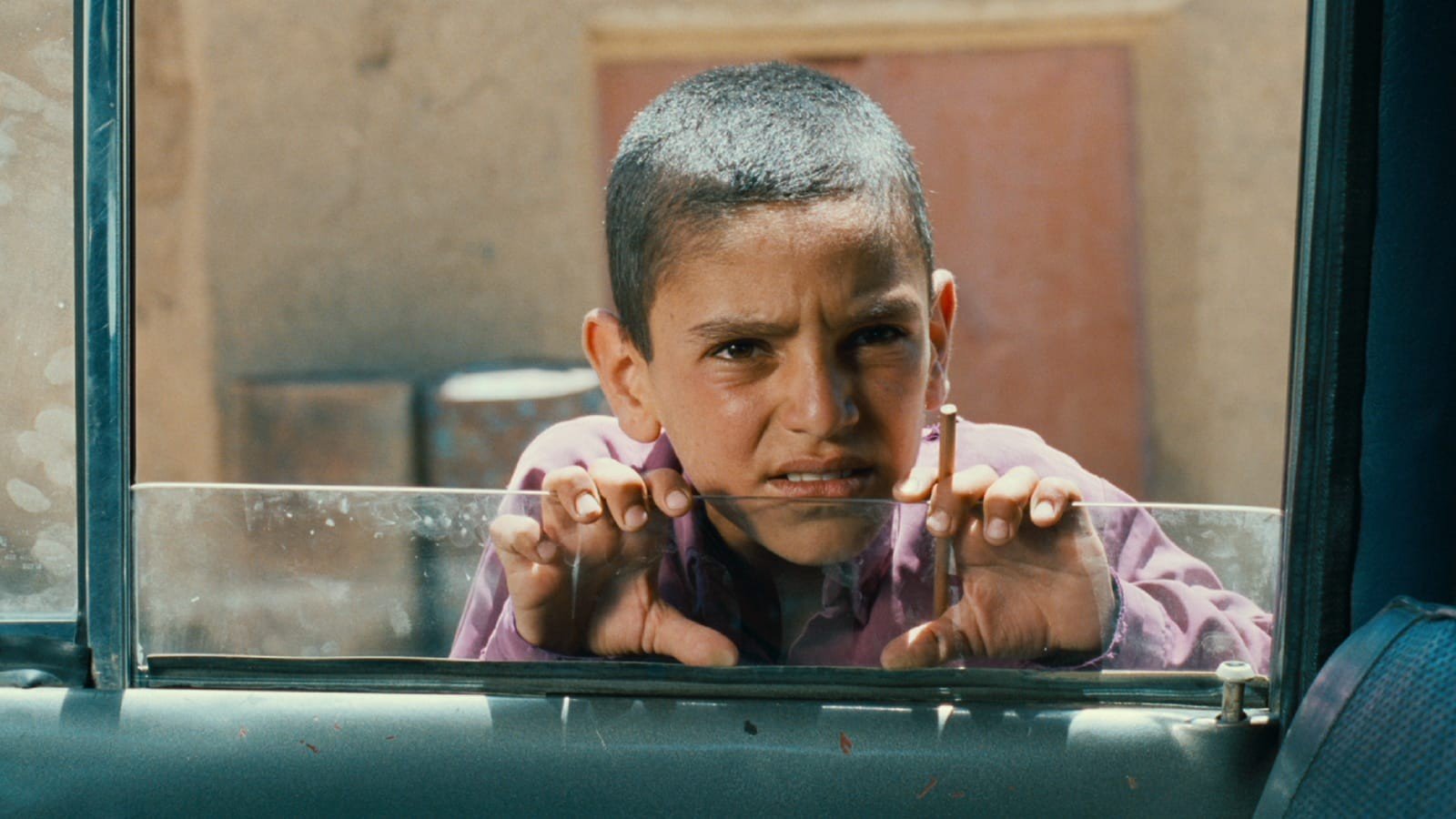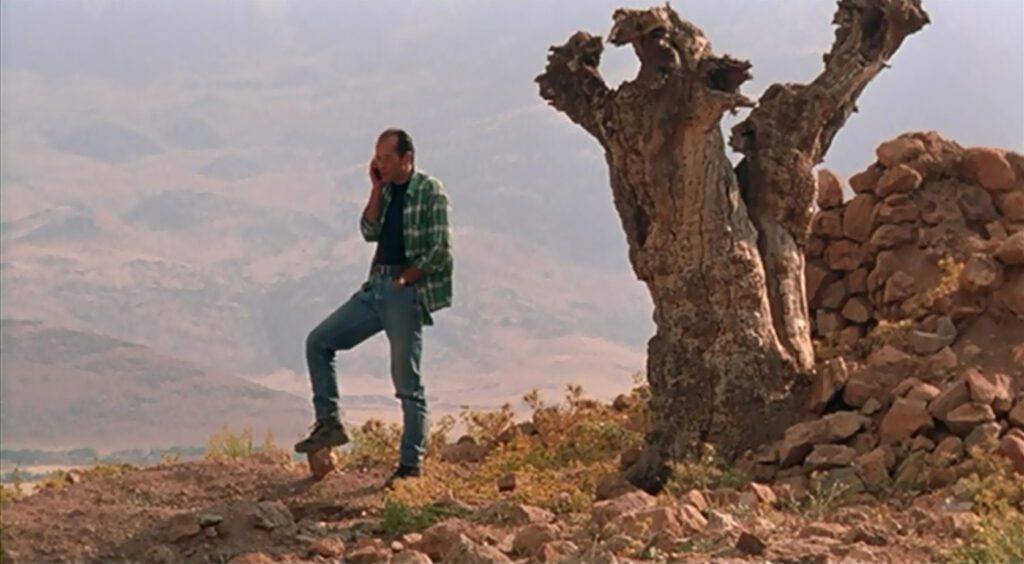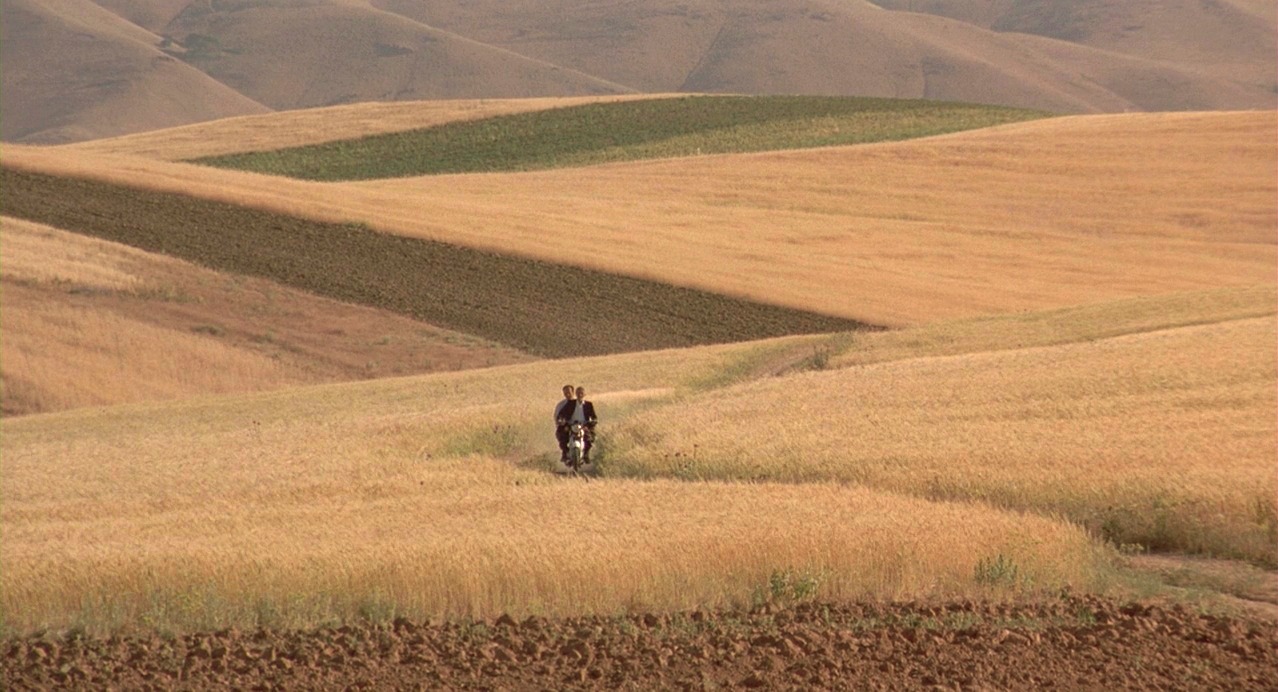The Wind Will Carry Us (1999)

The Wind Will Carry Us (1999), directed and written by Abbas Kiarostami, is a mesmerizing exploration of human existence, culture, and the intricacies of life and death. Set in a remote Iranian village, the film delves deep into the philosophical aspects of life, blending realism with poetic sensibility. The title of the film, inspired by a poem by the renowned Iranian poet Forough Farrokhzad, encapsulates the ethereal and transient nature of life itself. Through the eyes of its protagonist, the film takes the audience on a journey of self-discovery, cultural immersion, and an encounter with the impermanence of existence.
The plot revolves around a man, played by Iranian actor Behzad Dorani, who is a city-based engineer sent to a rural village to document a traditional mourning ritual. His mission is to investigate the local customs surrounding death, specifically the burial of an elderly woman who is on the brink of passing away. Arriving with a team under the guise of researching the event, the man becomes increasingly captivated by the life and rhythms of the rural village. However, as he waits for the inevitable death to occur, he forms an unexpected connection with the people in the village and begins to confront his own notions of life and death.
Kiarostami’s direction is a masterclass in subtlety, as he carefully constructs a narrative that emphasizes the mundane aspects of life while simultaneously addressing profound existential questions. The film’s pacing is deliberate, with long takes that allow the audience to immerse themselves in the slow rhythms of the rural environment. This is in stark contrast to the fast-paced life of the protagonist, who, as a city-dweller, is accustomed to efficiency and urgency. The film explores this contrast, highlighting the protagonist’s gradual shift in perception as he comes to appreciate the slow, contemplative nature of village life.
One of the most significant themes of The Wind Will Carry Us is the idea of life’s impermanence. The protagonist arrives in the village expecting to witness a ritualistic death, but his initial obsession with death slowly transforms into a meditation on life. Kiarostami emphasizes this shift through visual metaphors, such as the frequent use of wind in the film. The wind, a recurring motif, symbolizes the passage of time and the uncontrollable forces of nature that guide human lives. Just as the wind cannot be held or controlled, so too are human lives fleeting and transient. The film thus asks the audience to reflect on the fragility of life and the inevitability of death.

The characters in the film, though simple and unassuming, are portrayed with depth and complexity. Through the protagonist’s interactions with the villagers, particularly his conversations with a young boy and the elderly woman, Kiarostami explores the complexities of human connection and the ways in which people from different walks of life perceive the world around them. The protagonist’s gradual understanding of the villagers’ lives, and his growing empathy for them, highlights the universality of the human experience, transcending cultural and geographical boundaries. In the process, the protagonist’s journey becomes a reflection of our shared human condition, making his eventual realization of the inevitability of death all the more poignant.

The visual style of The Wind Will Carry Us is another aspect that sets it apart. Kiarostami employs a minimalist approach, relying on long shots, wide landscapes, and a muted color palette to create a sense of tranquility and introspection. The landscape itself becomes a character, representing both the beauty and the harshness of life. The seemingly endless stretches of rural terrain serve as a metaphor for the uncertainty and unpredictability of life, while also reflecting the serenity that can be found in accepting the natural rhythms of existence. This style complements the film’s philosophical themes, making it not just a narrative experience but an emotional and visual meditation on life.

In conclusion, The Wind Will Carry Us is a profound and contemplative work that examines the delicate balance between life and death, the rapidity of urban existence versus the slowness of rural life, and the human condition in all its complexity. Through Kiarostami’s careful direction, the film invites the audience to reflect on their own lives and the transient nature of existence. The film’s use of poetic imagery, slow pacing, and philosophical themes makes it a rich cinematic experience that lingers long after the credits roll. As the title suggests, like the wind that carries us, life moves forward, and all things, both mundane and profound, are subject to the passage of time.











